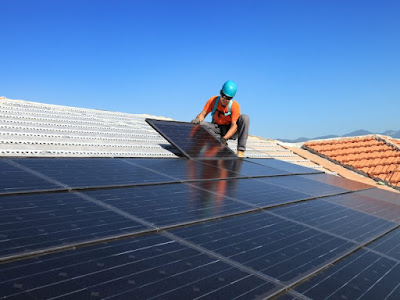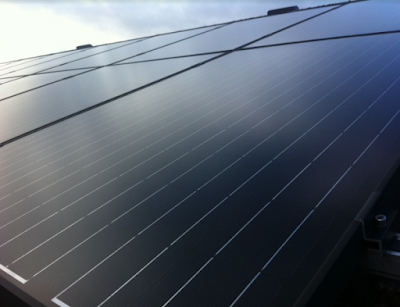There are lots of reasons to go solar. Solar energy is good for the environment and can help you save money on your energy bills. But like many other major home investments, solar panels can also add value to your home.
A collaboration between researchers with the National Renewable Energy Laboratory (NREL) and Abilene Christian University, for instance, looked at a group of homes in San Diego built in 2001. In their 2008 report, the researchers found that “The average gains in value for [homes] with PV systems are higher than for those without PV systems.” These increased values suggested to the research team that “concerns about solar panels diminishing resale value appear unwarranted.”
Drawing on data collected from home sales in and around Sacramento and San Diego, researchers with the National Bureau of Economic Research (NBER) concluded in 2011 that a standard residential solar energy system added three to four percent to a home’s value. That three to four percent increase meant that an average home would enjoy a $22,554 bump in value - $1,500 more than the average installation cost of the solar system cost (including subsidies).
Another 2011 study of homes in California found that from Lawrence Berkeley National Laboratory (LBNL) conducted between 2000 and 2009 found that, “California homes with PV systems have sold for a premium over comparable homes without PV systems.” The researchers found that installing a solar system increased the average California home’s value by $3.90 to $6.40 per installed watt, with most home values increasing by $5.50 per watt. Like the prior study by the NBER, the LBNL study found that for most solar systems, the cost of installation was less than the value added. The typical solar system in the study had a capacity of about 3.1 kilowatts, which translated to an average rise in home values of $17,000.
In one of the few studies conducted outside California, the Colorado Energy Office published a report in 2013 about the impact of solar systems on 30 homes in the Denver metropolitan area. The homes were valued between $200,000 and $680,000, and enjoyed a boost in their market values of $1,400 to $2,600 per installed kilowatt. That’s a sharp contrast against the impact solar systems had on home prices in California, which rose by about $5,500 per installed kilowatt according to the 2011 LBNL study. Because of these lower return-on-investment rates, the research team found that “[solar energy] systems currently cost more to install then they contribute to market value.” But at the same time, they concluded that “systems (that are owned) typically increase market value and almost always decrease marketing time.”
LBNL returned to the question of how solar systems impact home values in 2015, when it reported that a 3.6 kilowatt solar system adds an average of $4 per watt (or $15,000) to home values. Drawing on a decade’s worth of data from 4,000 homes in California, Florida, Connecticut, Maryland, North Carolina, Massachusetts, New York, and Pennsylvania, LBNL concluded that for each watt of installed PV, sale prices increase by about $4.18. California home prices again demonstrated larger average premium increases value, gaining as a result of solar system installation, with an average premium of $4.21, compared to a $3.11 premium elsewhere.
An even more recent LBNL study that looked at 43 homes in six states found that installing a solar system increased the home price by an average of $3.78 per watt. Like other multi-state studies, the data demonstrated that premiums garnered by solar installations are highly variable according to location. In Florida, for instance, installing a solar system added an average premium of $12,760 to the home’s value. But in the Portland metro area, the average premium was just $10,600 - a 17 percent difference.
These studies have also found that older solar systems tend to add a lower premium to the home’s value. And premiums tend to be higher in areas where a high proportion of the residents are college graduates, since college grads tend to be more aware of their carbon footprints.
In short, solar energy systems not only increase home values, but they often do so at rates that allow homeowners to completely recoup their investment. And these analyses don’t even include the value that solar systems provide in the form of savings on energy bills. PowerScout, a California-based solar startup, estimates that homeowners could save over $1,000 annually on energy expenditures simply by switching to solar.
Article Submission:

Kyle Pennell is the Content Manager at PowerScout -- we help homeowners
figure out if installing solar is right for them and get competitive bids
from multiple installers. Our long-term mission is to accelerate the
adoption of solar (and other smart home improvements), which will help
mitigate climate change.
Looking forward to your feedback!
Best,
Kyle
kylep@powerscout.coThank You for stopping by the Green Blog. If additional information is needed or you have a question let me know by posting a question or comment. Together we can make a difference and create a future that will benefit everyone.


